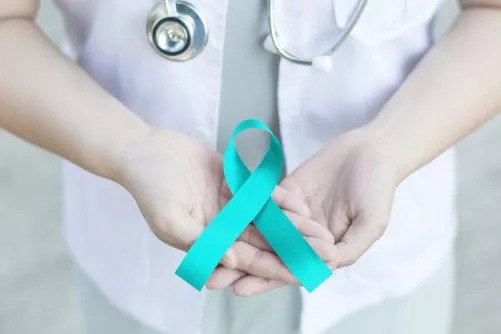Although the HPV vaccine has proven to be highly effective at preventing HPV-related diseases and cancers, misconceptions still exist about how it works, who should receive it, and whether it is safe. Dr. Linus Chuang, chair of bbstetrics and gynecology for Nuvance Health discusses seven myths about HPV and the HPV vaccine and also the facts you need to know.
Myth #1: I/my child won’t contract HPV.
Fact: HPV is the most common sexually transmitted infection.
Most sexually active people will contract HPV. The U.S. Centers for Disease Control and Prevention (CDC) estimates that nearly 80 million people — or 1 in 4 Americans — are infected with HPV. The CDC further estimates that about 14 million people, including teens, will contract a new HPV infection each year.
Myth #2: Having HPV doesn’t mean I/my child will get cancer.
Fact: Having HPV increases cancer risk — and HPV-related cancers are on the rise.
According to the CDC, more than 43,000 people developed HPV-associated cancer in 2015, up from 30,000 people in 1999. The HPV vaccine can prevent most types of HPV-related cancers, including anal, cervical, penile, throat, and vaginal cancers.
Myth #3: The HPV vaccine is only for women.
Fact: Men and women should get the HPV vaccine.
HPV affects both men and women. HPV can cause genital warts and anal and oral cancers in both men and women. It can also cause cervical or vaginal cancers in women and penile cancers in men. Because HPV often does not cause symptoms right away and many people are unaware that they have it, it can easily and unknowingly be transmitted to a sex partner.
Myth #4: The HPV vaccine isn’t effective.
Fact: The newest vaccine is effective against nine strains of HPV.
When Gardasil, the original HPV vaccine, was first approved by the FDA in 2006, it only protected against four types of HPV. In 2014, the FDA approved a new vaccine called Gardasil 9 that protects against the same four types of HPV, plus an additional five types.
Research also shows that the HPV vaccine provided nearly 100 percent protection against persistent cervical infections with HPV types 16 and 18, plus the pre-cancers caused by those persistent infections.
Myth #5: The HPV vaccine is only for children and young adults.
Fact: Children and adults ages 9 to 45 can now get the HPV vaccine.
Gardasil and Gardasil 9 were originally approved for boys and girls ages 9 to 26. In 2018, the FDA expanded the age range for Gardasil 9 to include men and women ages 27 to 45. This expanded approval provides more opportunity to prevent HPV-related diseases and cancers in a broader age range.
Although the HPV vaccine is most effective when it is given before someone becomes sexually active — ideally in childhood — there is now data that suggests that the vaccine also can benefit adults. Statistics show that many sexually active adults have been exposed to some types of HPV, but most have not been exposed to all nine types covered by the newest vaccine. Even if an adult already has HPV, the vaccine may still help to reduce the risk of developing HPV-related diseases.
Myth #6: The HPV vaccine isn’t safe.
Fact: Extensive testing and research show that the HPV vaccine is safe.
The FDA closely monitors the safety and effectiveness of all vaccines before and after approval, and research shows that the HPV vaccine is safe. However, like any other vaccine or medication, some people may experience mild reactions or side effects to the HPV vaccine, such as fever, dizziness, fatigue, or pain, redness, or swelling at the injection site.
Myth #7: The HPV vaccine encourages sexual promiscuity.
Fact: Research has shown no link between being vaccinated for HPV and an increase in sexual activity.
Recent research that included 500,000 individuals found that there was no increase in sexual activity after HPV vaccination. Additionally, the research showed that participants who received the HPV vaccine actually engaged in safer sexual practices than unvaccinated participants.
The bottom line: The HPV vaccine is a safe and effective way to reduce your risk (or your child’s risk) of developing an HPV-related health problem. Parents should ask their child’s pediatrician about the HPV vaccine — ideally before the child becomes sexually active. Adult men should speak with their primary care provider about the HPV vaccine, and adult women should talk with their gynecologist.
Dr. Linus Chuang is the chair of OB/GYN at Nuvance Health’s Danbury Hospital and Norwalk Hospital. He is a global gynecologic oncology expert and the American Society of Clinical Oncology’s (ASCO) International Affairs Committee Chair. Chuang has been recognized as an American Cancer Society (ACS) HPV Champion. He is passionate about educating people about the benefits of HPV vaccination and its role in preventing cancer and other HPV-related diseases.

Be the first to comment on "Physician Dispels Common Misconceptions About the HPV Vaccine"